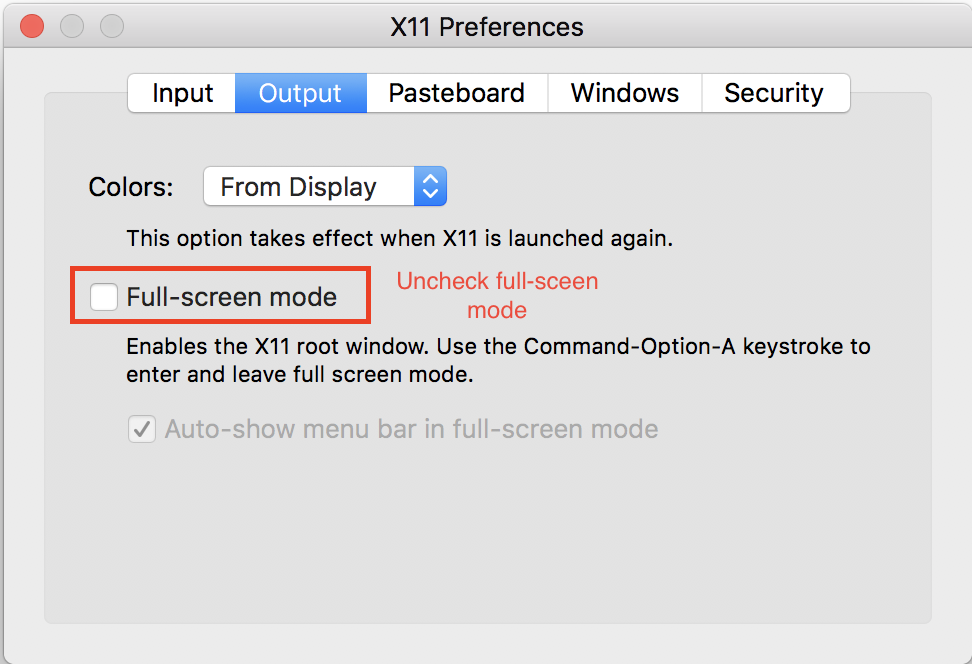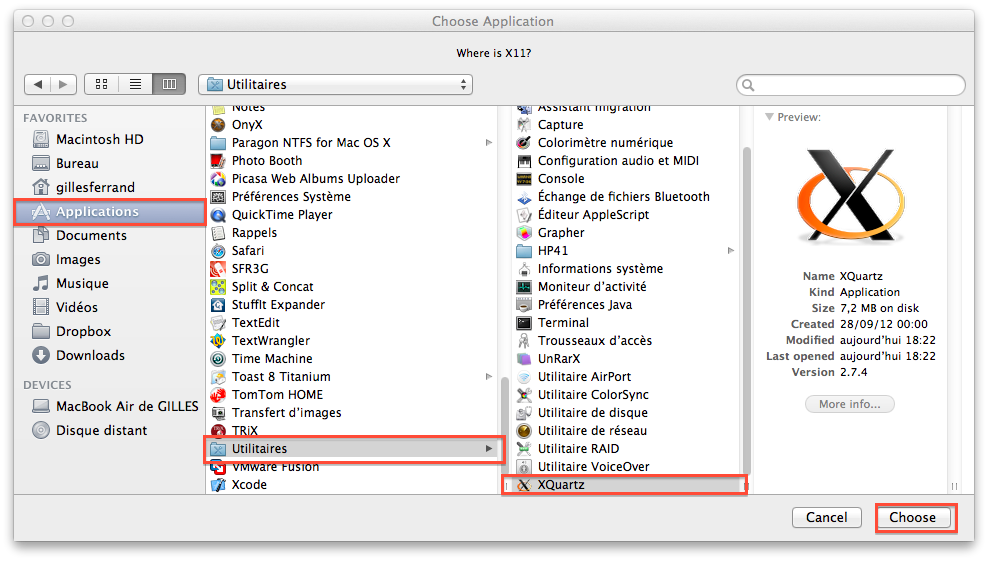

To start Albert on boot, I have the following in my Sway config: exec sh -c "export QT_QPA_PLATFORM=\"xcb\" & export DISPLAY=:0 & /usr/bin/albert"Īnd to set the hotkey: bindsym ctrl+space exec '/usr/bin/albert toggle'Ĭaveat: while Albert now works on Wayland, can find my files, and is fast to summon, it still isn't as good as Gnome Do. To get it not to crash (segfault) when summoned, it you have to set the following environment variables somewhere where Albert can find them: QT_QPA_PLATFORM=xcb and DISPLAY=:0. However, once installed, you're still not quite done. wayland-crash-fix -DCMAKE_INSTALL_PREFIX=/usr -DCMAKE_BUILD_TYPE=Debug albert -DCMAKE_INSTALL_PREFIX=/usr -DCMAKE_BUILD_TYPE=DebugĬmake. Git clone -b wayland-crash-fix wayland-crash-fix
#Xquartz ubuntu install#
Sudo apt install -no-install-recommends -y cmake g++ libmuparser-dev libqt5charts5-dev libqalculate-dev libqt5svg5-dev libqt5x11extras5-dev python3-dev qtbase5-dev qtdeclarative5-dev unzip virtualbox wget libqt5sql5-sqlite Here is the script that I cobbled together to successfully install it: #!/bin/bash I eventually got it working by installing the wayland-crash-fix branch of johanhelsing's fork in lieu of the official version. Getting to work turned out to be more arduous than expected, and involved a lot of time head-scratching about why it was having segmentation faults. I read about people running it on Wayland, even though it doesn’t officially support it, so I decided to give it a shot. Albert does not support Wayland, and I have had trouble getting it to even work previously, but it’s also one of the more powerful and actively maintained, and is the closest thing to a drop-in replacement for Gnome Do. In the past, I have also tried Synapse, Albert, Kupfer, Rofi, and dmenu. It still worked on Ubuntu 18.04 on X11, but to my great disappointment it is not in the Ubuntu 20.04 repositories. Sadly, Gnome Do hasn't been updated or maintained since 2009. I summon Do with ctrl+ spacebar, and then have access to pretty much everything I have used even remotely recently with 2-5 keypresses. I used Gnome Do, which is blazingly fast, and supports fuzzy search. My entire workflow revolves around my app launcher, which I use to launch apps (duh), find files, calculate things, control my system, and occasionally run commands. To replicate that with Sway and Waybar: bindsym $mod+n exec killall -SIGUSR1 waybar In my i3 config, I had mod+n bound to toggle i3bar visibility: bindsym $mod+n bar mode toggle The end result, while far from gorgeous, is functional and non-offensive: Making Waybar Space-Efficient

I also removed the garish background colours on the different widgets. Other than that, I left the Waybar config mostly default, only removing the stuff I didn't need, and adding a more usable time and date widget. I just edited my Waybar config, and removed all the icons that didn’t display properly. I didn’t manage to find the FontAwesome package that it depends on, but that was just as well, because I didn’t want the icons anyway. Eventually I abandoned it and installed Waybar, a more full-featured Sway bar written in C++: I spent a while hacking away at a custom statusline script, with underwhelming results. After procrastinating as long as I could, I built Sway 1.5 rc2 from source, which resolved both issues. The version in the repositories worked alright, but it had two bugs that had been fixed in the master branch: it failed to refocus the keyboard on the previous window after interacting with a popup, and it crashed when wtype was run (due to an issue with virtual keyboard grouping). Sway is at last in the Ubuntu repos, and installing it is as easy as: sudo apt install sway … this article might make the switch from i3 to Sway slightly quicker and more pleasant! Installing Sway Aren't afraid of building (most) packages from source.Want to be able to customize your desktop environment and workflow endlessly (in both senses of the word), and.



 0 kommentar(er)
0 kommentar(er)
